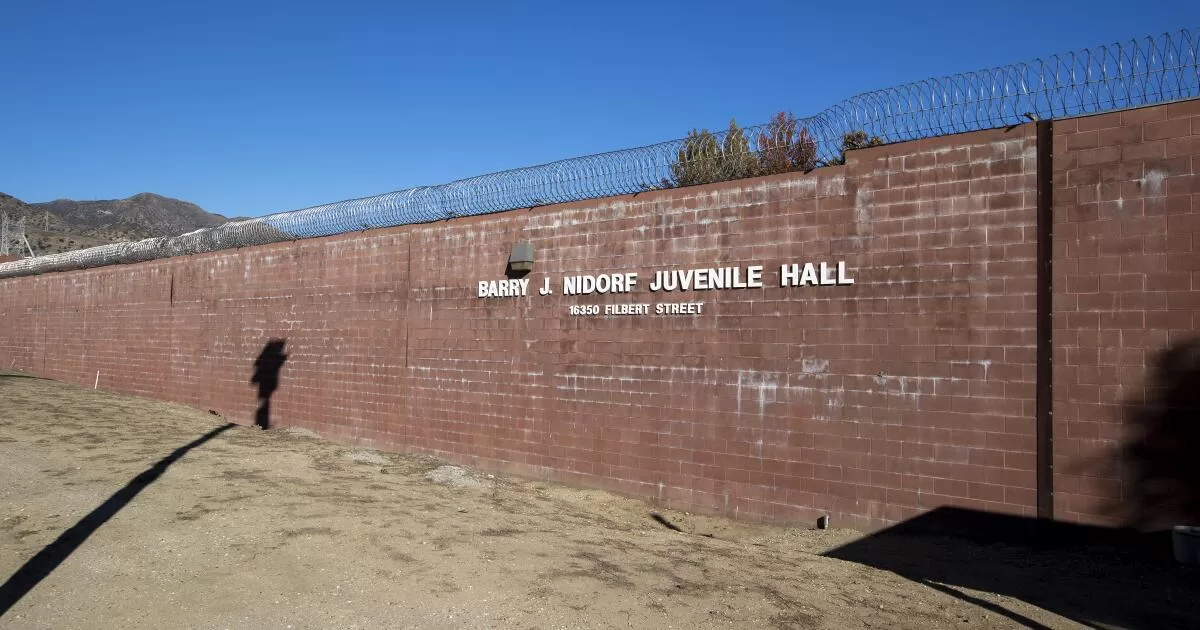Many people who say they were raped or molested while confined at California juvenile facilities are out of time to sue the county governments that oversaw their care.
On Sunday, Gov. Gavin Newsom vetoed a bill that would have changed the statute of limitations to give people sexually abused in juvenile facilities more time to sue. His decision infuriated victim advocates, who accused him of bowing to pressure from local officials concerned about how to pay for an onslaught of litigation.
The bill built on a 2020 change in state law that opened a three-year window for victims to sue in cases where the statute of limitations had expired. For sexual abuse that occurred prior to 2024, victims normally can sue until they turn 40, or within five years of discovering a mental health condition related to the abuse.
The 2020 change led to a flood of lawsuits against organizations across California, notably the Catholic Church, school districts and local governments.
Alarmed at the number of lawsuits that involved Los Angeles County’s network of juvenile facilities, Assemblymember Buffy Wicks (D-Oakland) introduced a bill that would have opened a one-year window within the statute of limitations for people to sue over sexual abuse that occurred at juvenile detention facilities and probation camps throughout the state.
In vetoing the bill, which had sailed through the state Assembly and Senate, Newsom argued that it would have encouraged similar efforts to set aside the statute of limitations, including in cases where “key evidence” had been lost.
John Manly, whose firm has represented victims in sexual abuse cases involving the Los Angeles Unified School District and the Archdiocese of Los Angeles, called the veto “a slap in the face” to victims and “a gift” to abusers.
“His tone deaf and inaccurate veto message sounds like something the Catholic Bishops would conjure in their ongoing efforts to protect pedophile priests,” Manly said in a statement.
Newsom had previously signed legislation that provided a similar window for lawsuits from victims of USC’s George Tyndall and UCLA’s James Heaps, both gynecologists accused of widespread sexual abuse.
“He had no problem advancing the others,” said attorney Mike Arias, who worked on the Tyndall litigation and now says he is representing about 200 plaintiffs suing L.A. County over sexual abuse. “He just got pressure he didn’t want to stand up to.”
The main public opposition to the bill came from L.A. County, which has recently been sued by thousands of adults who say that staff at county juvenile facilities raped, molested or fondled them.
L.A. County Chief Executive Fesia Davenport, who drafts the county budget, said in an interview last week that she believes the financial cost of the recent sexual abuse litigation could soon force the county to shrink services and possibly lay off workers.
Last year, county officials said that resolving sexual abuse claims from an estimated 3,000 plaintiffs could cost $1.6 billion to $3 billion. The number of plaintiffs has since increased to more than 5,600, Davenport said.
“Whatever it is, we’re not going to be able to afford it,” she said.
Davenport said the settlements, which will need to be accounted for in the next budget cycle, would require a “more significant belt-tightening” than when county revenue was diminished by the pandemic.
County lawyers say many decades-old cases are difficult to litigate because records no longer exist to corroborate even the most basic allegations.
“We’re scratching our heads and trying to figure it out in real time,” said Jason Gonzalez, an attorney for the county.
But plaintiffs’ attorneys say the county should take responsibility for the abuse that occurred under its watch.
“That’s kind of been their mantra the entire time. ‘Services are going to get cut. People are going to lose their jobs,’” said Doug Rochen, whose firm represents about 1,400 people who say they were sexually abused while in L.A. County’s care as children. “Well, that’s nice, but you shouldn’t have allowed for pervasive sexual abuse [that] occurred for decades.”
Wicks’ office did not respond to a request for comment on the governor’s veto. She had previously told colleagues at a June meeting that she was looking to pass the bill “in a way that doesn’t cripple our local government” and that she would work with L.A. County to find a palatable solution.
“But the fact remains that there were a bunch of young people who were victimized,” she said at the time. “We need to figure out how to rectify that.”
